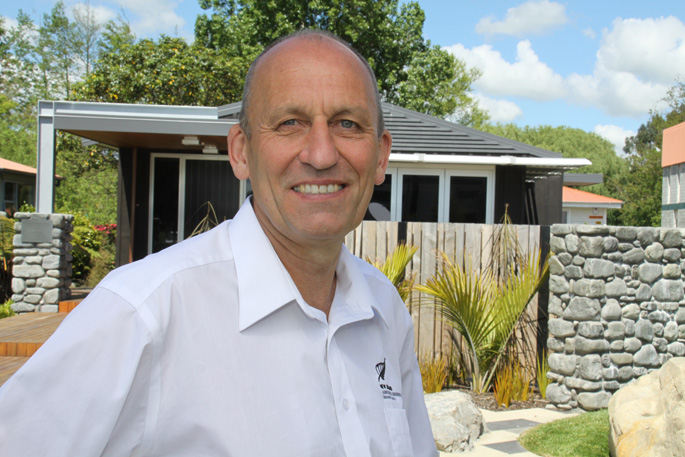Within the next five-10 years, it’s likely New Zealand’s livestock farmers will be able to employ selective breeding, methane inhibitors and perhaps even methanogen vaccines to help reduce their greenhouse gas emissions.
In the meantime, farmers wanting to make a difference need to know what their emissions are and where they come from, so they can examine every facet of their business for efficiency improvements that can maintain profitability while reducing emissions.
That’s the message from Dr Harry Clark, who is director of the NZ Greenhouse Gas Research Centre and a member of the Interim Climate Change Committee.
NZAGRC has launched a new website – at: www.farmingmatters.nz – aimed at equipping Kiwi farmers and rural professionals with the knowledge they need to assess and manage on-farm emissions, and adapt to a changing environment.
Harry Clark says the website-launch is timely in light of the Government’s recent signal it will implement farm-level accounting and pricing of agricultural greenhouse gas emissions by 2025.
The site initially focuses on methane, which makes up 70 per cent of NZ’s agricultural emissions, but will soon expand to include information on nitrous oxide, another significant agricultural greenhouse gas, as well as strategies for adapting to climate change.
“Methane belched out by ruminant livestock such as cows and sheep is a problem for NZ,” says Harry.
“While methane breaks down in the atmosphere a lot faster than other greenhouse gases such as carbon dioxide, every tonne emitted is 28-34 times more effective at trapping heat than a tonne of carbon dioxide, during the first 100 years after an emission occurs.
“Researchers here and overseas are therefore investigating a number of technologies that might help to reduce methane emissions by livestock in future.”
Some animals emit less methane per unit of feed eaten than others, thanks to a smaller rumen with a distinctive population of micro-organisms.
Breeding for this trait could result in a potential emissions reduction of three-eight per cent during 20 years. This research is well advanced in sheep, while work in cattle is just starting, says Harry.
Methanogen vaccines and inhibitors are also under development. Vaccines are being tested in the laboratory, with the goal of reducing methane emissions by 30 per cent.
An inhibitor has already been developed in the Netherlands that demonstrably reduces emissions by at least 30 per cent. However, in its current formulation, it must be included in every mouthful of feed – less than ideal for NZ’s pasture-based livestock. New formulations and alternative products are being investigated.
But until such technologies are available, Harry encourages farmers wanting to further reduce their emissions to keep looking for small improvements in every aspect of their operation.
He says efficiency gains already achieved across the sector mean that NZ’s total agricultural greenhouse gas emissions are no longer going up.
“Not all farms have the same potential to further reduce emissions. Some farmers have already done what they can. Others are limited by their unique climate, topography, markets and infrastructure.
“But there are a number of steps they might like to consider – and every small step is a step in the right direction."
These could include getting more production from pasture to reduce reliance on imported feeds, trialing alternative forage crops, reducing stock numbers but increasing productivity per animal, achieving greater longevity in the breeding herd or flock, and applying nitrogen fertiliser using precision technologies.
Harry says there’s no one-size-fits all solution, and individual farmers are in the best position to figure out how they might be able to reduce their emissions without compromising profitability – particularly as the framework for managing farm-level emissions takes shape in coming years.
The new Farming Matters website aims to help by addressing some of the existing myths and misunderstandings about agricultural greenhouse gases and climate change and communicating the very latest advances in emissions-reduction technologies and practices. The site uses short videos and simple graphics to help explain the science and associated issues.
“Ultimately, NZ’s emissions reduction targets and ongoing response to climate change will be the outcome of a range of complex interacting factors, not just science and technology
“Our goal with Farming Matters is to ensure farmers have the information they need to weigh up their options and take steps towards reducing farm-level greenhouse gas emissions,” says Harry.



0 Comments
Leave a Comment